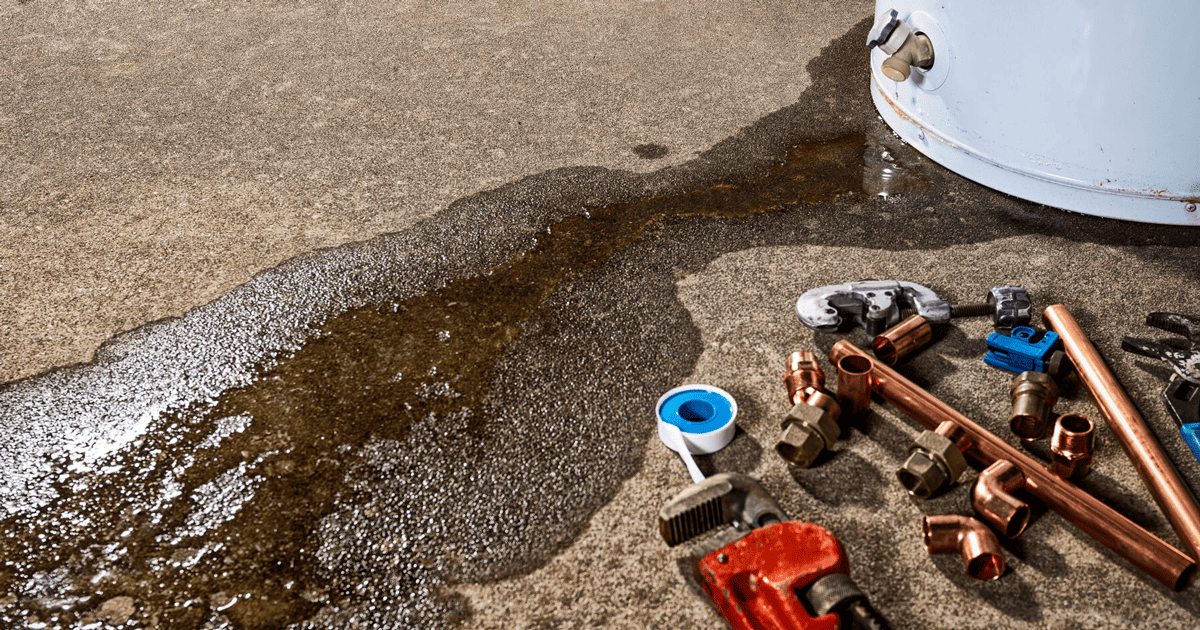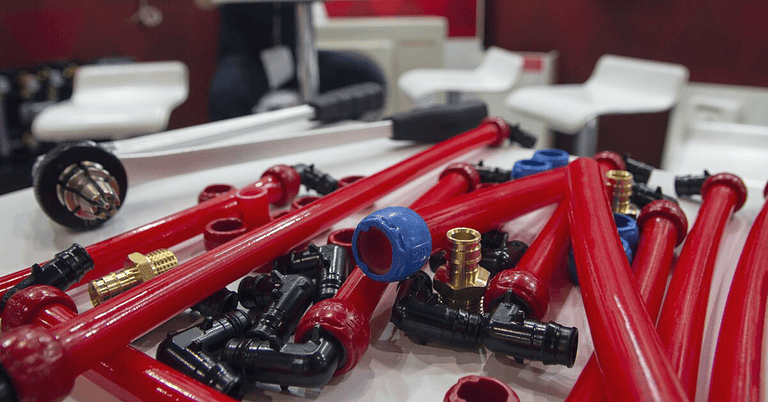Hot Water In Some Faucets But Not Others
Did you know that hot water is essential to our daily lives, serving purposes such as bathing, cooking, and cleaning? It’s frustrating when some faucets in your house dispense hot water while others don’t. This issue can be caused by various factors related to your plumbing system.
For instance, you may have noticed that turning on the hot water in one room affects the temperature in another. This could indicate a problem with the anti-scalding valve at the water heater or potentially a defective valve under the sink.
To address this inconsistency and restore a consistent hot water supply throughout your home, accurately identifying the problem’s source is crucial. In this article, we will explore common causes for inconsistent hot water supply and provide solutions to resolve them. Additionally, we will discuss preventive measures to avoid future issues and when it may be necessary to call a professional plumber for assistance. (Read In What Way Is A Spud Wrench Different From A Pipe Wrench)

The Importance of Hot Water in Our Daily Lives
Hot water is crucial in maintaining hygiene and providing comfort in our daily lives. It is necessary for washing dishes, doing laundry, and taking showers or baths. Additionally, hot water is essential for home maintenance, as it helps to clean and sanitize various household items and surfaces. Without hot water, these activities would be more challenging to accomplish efficiently.
Ensuring the availability of hot water throughout your home is vital for maintaining cleanliness and personal well-being. Hot water lets you properly wash away dirt, grease, and bacteria from your hands during handwashing routines. Furthermore, it allows you to thoroughly clean dishes and utensils after meals, preventing the spread of germs and ensuring food safety. With hot water readily accessible in your home’s faucets, you can maintain proper hygiene practices effortlessly.
In addition to its impact on hygiene, hot water contributes significantly to overall comfort within your living space. Taking warm showers or baths provides relaxation while helping relieve muscle tension and promoting better sleep quality. Moreover, readily available hot water ensures you can enjoy a warm beverage anytime or have cozy heating during colder seasons with systems like radiators or underfloor heating.
Regarding home maintenance, hot water is an indispensable tool for effective cleaning and sanitizing tasks. It allows you to remove stubborn stains from clothing when doing laundry using higher temperature settings. Hot water also enables efficient cleaning of household surfaces such as countertops, floors, tiles, and bathroom fixtures by effectively breaking down grime and disinfecting areas prone to bacterial growth.
Overall, recognizing hot water’s importance in hygiene practices and home maintenance emphasizes the need for a reliable supply throughout your house’s faucets. Whether it’s ensuring cleanliness or enhancing comfort levels within your living space- having access to consistent hot water dramatically contributes to maintaining a healthy lifestyle. (Learn How Much Peat Moss For Overseeding)
The Role of Hot Water in Hygiene and Comfort
Access to warm water is essential for maintaining proper hygiene and ensuring comfort in our daily lives. Hot water from the faucet is crucial in various activities, including washing hands, showering, and laundry. However, it can be frustrating when some taps don’t dispense hot water while others do. This may indicate a problem with the water heater or a blockage in the hot water flow. In the next section, we will explore how hot water relates to home maintenance and potential solutions for this problem.
Hot Water and Home Maintenance
Ensure the smooth functioning of your home by properly maintaining and troubleshooting issues with your hot water system. Here are four key points to consider when dealing with the problem of hot water in some faucets but not others:
- Check the hot water valve: Make sure the valve is fully open to allow hot water to flow through the pipes.
- Inspect the pipes: Look for any signs of damage or leaks affecting the hot water supply.
- Examine the water line: Ensure there are no blockages or obstructions in the water line that could be causing inconsistent hot water flow.
- Call a professional plumber: If you cannot identify or resolve the issue yourself, it’s best to seek help from a qualified plumber.
By addressing these potential causes, you can determine why certain faucets aren’t receiving hot water and take appropriate action.
Now let’s explore common causes of inconsistent hot water supply.
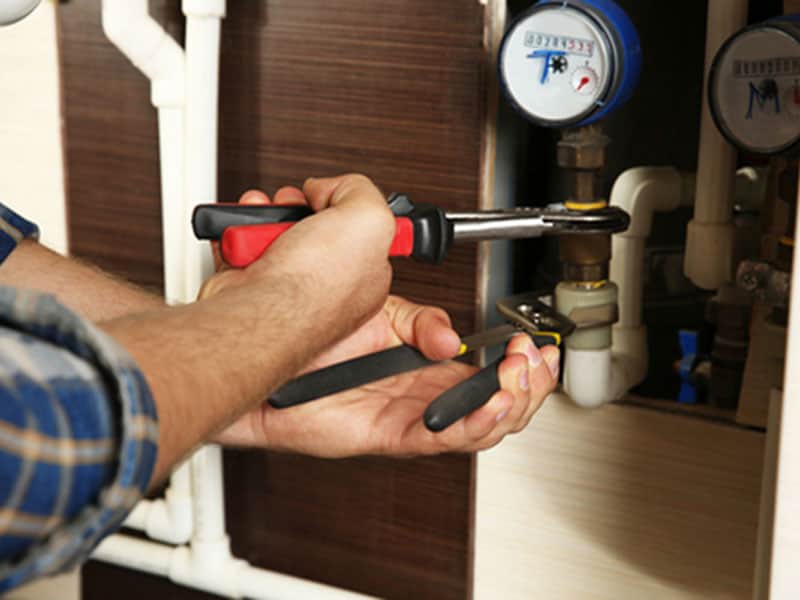
Common Causes of Inconsistent Hot Water Supply
If you’re experiencing inconsistent hot water supply, several common causes exist. Blockages in the water pipes can restrict the flow of hot water and affect specific faucets.
Issues with the water heater, such as a faulty thermostat or heating element, can also result in inconsistent hot water. Problems with the water valve, such as it being closed or partially blocked, can further contribute to the issue.
Additionally, leaks in the plumbing system can cause a loss of hot water and should be inspected and repaired.
Blockages in Water Pipes
- Sediment and mineral deposits in water pipes can cause blockages, leading to hot water not flowing through some faucets.
- Over time, these particles accumulate and restrict the flow of hot water in the plumbing system.
- This can result in reduced or no hot water from specific faucets, such as the kitchen.
- Blockages can occur in both the hot and cold water lines, causing an imbalance in the system.
Now let’s move on to discuss issues with the water heater.
Issues with the Water Heater
Check the condition of your water heater to see if it’s functioning properly and providing the necessary heat for a soothing shower experience. Here is a table summarizing common issues with water heaters that can affect hot water flow in faucets:
| Issue | Description | Solution |
|---|---|---|
| Rust & Leaks | Rust causes leaks and requires the replacement of the water heater. | Replace the water heater if rust is present. |
| Defective Heating System | Faulty heating elements may require replacing the entire water heater. | Check heating elements for damage and potentially replace the water heater. |
| Energy Source Issues | Power supply problems can cause breakage in hot water delivery. | Check energy source connections and address any power supply issues. |
Now, let’s discuss problems with the water valve that could be causing limited or no hot water flow from sure faucets without writing ‘step.’
Problems with the Water Valve
Explore the frustrating possibility that your faucets may be deprived of soothing warmth due to a troublesome water valve. Discover how this component can affect the flow of hot water in your home:
- A faulty water valve can restrict or completely block the flow of hot water.
- It may prevent the correct mixing of hot and cold water, resulting in only cold or lukewarm water coming out of some faucets.
- Mineral deposits or debris trapped within the valve can also hinder proper functioning.
Understanding these issues with the water valve is crucial in troubleshooting and resolving a lack of hot water.
Now let’s delve into another potential problem: leaks in the plumbing system.
Leaks in the Plumbing System
Leaky pipes can turn your home into a watery mess, causing frustration and potential damage. If you have hot water in some faucets but not others, it could be due to leaks in the plumbing system. These leaks can disrupt the flow of hot water and affect water pressure throughout the house. To identify the source of the problem, you’ll need to examine the affected faucets and inspect the plumbing system for any signs of leakage or damage. (Learn How To Clean Wood Doors)
How to Identify the Source of the Problem
To identify the source of the problem with inconsistent hot water supply, you should start by checking the water flow in all faucets. Turn on each faucet individually and note if hot water is coming out or only affecting certain faucets.
Next, inspect the water heater to ensure it’s functioning correctly and that there are no issues like leaks or faulty heating elements. Assess the water pressure and temperature throughout your plumbing system. This can provide valuable insights into the problem.
Also, look for any leaks or blockages hindering hot water flow.
Checking Water Flow in All Faucets
Check all the faucets in your house to see if the hot water is flowing correctly. Is the hot side of the faucet producing hot water? Are there any fluctuations in temperature? Check for low water pressure or reduced flow. Pay attention to any strange noises coming from the pipes.
Now, let’s move on to inspecting the water heater and determining if that’s causing the issue.
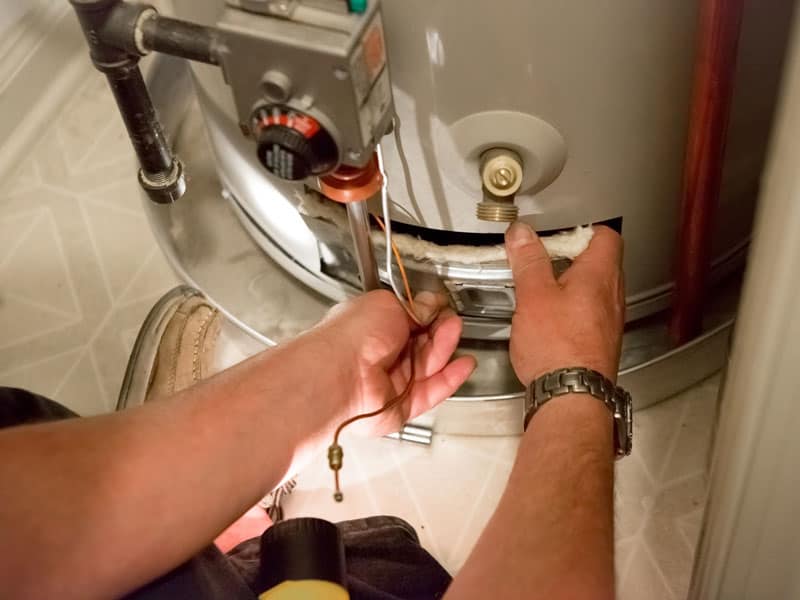
Inspecting the Water Heater
Don’t overlook your water heater’s crucial role in ensuring your comfort and convenience at home. Inspecting the water heater is essential when experiencing a lack of hot water in some faucets. Start by checking the hot water valve and ensuring it’s fully open.
Additionally, examine the temperature setting on the water heater to ensure it’s adjusted correctly. Assessing water pressure and temperature will help determine the next steps in resolving this issue.
Assessing Water Pressure and Temperature
Are you feeling frustrated with the lack of hot water in certain faucets? Let’s take a moment to assess the water pressure and temperature to uncover the solution.
- Check if the hot water supply is available in other faucets in the house.
- Please pay attention to the water temperature when it comes out of each faucet.
- Consider performing a main water line and hot or cold water valve adjustment.
Now, let’s move on to looking for leaks and blockages.
Looking for Leaks and Blockages
Now let’s move on to looking for possible leaks and blockages that could be causing the issue with hot water in some faucets but not others. Start by examining the kitchen sink faucet closely. Check for any signs of a blocked faucet or a water leak. Inspect the area around the tap for any water stains or dampness. These could indicate a hidden leak that is affecting the hot water flow.
Next, we will explore solutions to restore a consistent hot water supply throughout your home.
Solutions to Restore Consistent Hot Water Supply
To restore a consistent hot water supply, you can start by fixing any water pipe blockages that may be causing the issue. This involves checking for mineral deposits, debris, or sediment blocking the faucet or reducing water pressure. Additionally, you may need to repair or replace the water heater if it’s faulty or malfunctioning. Adjusting the water valve can also help ensure a steady flow of hot water throughout your faucets.
Lastly, addressing any leaks in the plumbing system is crucial to prevent further loss of hot water and potential damage to your home.
Fixing Water Pipe Blockages
Are you experiencing hot water in some faucets but not others? Let’s tackle the issue of fixing water pipe blockages. Here are three common causes that can lead to this problem:
- Mineral deposits: Over time, mineral deposits can accumulate in the pipes, blocking the flow of hot water. Flushing the pipes with vinegar and water can help remove these deposits.
- Debris or sediment: Similar to mineral deposits, debris or sediment can obstruct the pipes and reduce water pressure. Cleaning the faucet aerator and checking for any blockage can resolve this issue.
- Frozen pipes: Frozen pipes can prevent hot water from flowing correctly in colder climates. Heat guns, pads, or hairdryers to thaw out the frozen sections can restore the hot water supply.
Now that you’ve addressed potential pipe blockages let’s move on to repairing or replacing the water heater.
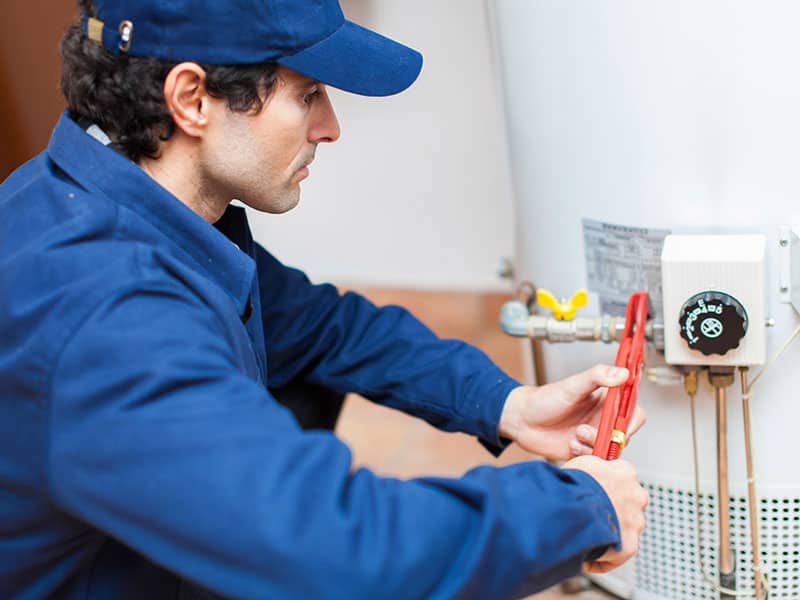
Repairing or Replacing the Water Heater
If you’re facing the frustration of no hot water in certain faucets, it may be time to explore the possibility of repairing or replacing your water heater. Here are some reasons why this issue may occur:
| Reason | Description |
|---|---|
| Cold and Hot Water | The main water supply may not correctly deliver hot water to specific faucets. |
| Faucet Handle | A faulty faucet handle can prevent hot water flow in certain faucets. |
Now that we’ve covered repairing or replacing the water heater, let’s move on to adjusting the valve. (Read Propane Tank Freezing On Outside)
Adjusting the Water Valve
Adjusting the water valve can potentially resolve the issue of no hot water coming out of certain faucets. To address this water issue, follow these steps:
- Locate the main water valve in your home
- Turn off the water supply by rotating the valve clockwise.
- Slowly open and close the hot water faucet a few times to release any trapped air.
By adjusting the water valve, you may be able to restore hot water flow to the affected faucet.
Now let’s move on to addressing leaks in the plumbing system.
Addressing Leaks in the Plumbing System
Now let’s tackle those pesky leaks in your plumbing system and get everything running smoothly again! Leaks in the plumbing system can cause hot water not to flow correctly or prevent hot water from flowing altogether. There are several reasons why hot water may only come out on one side of the faucet and not the other. It could be due to a faulty valve on the cold water side, a blockage in the hot water line, or even a problem with the faucet. Inspecting and repairing any leaks in your plumbing system is essential to address these issues.
| Possible Causes | Solutions |
|---|---|
| The faulty valve on the cold water side | Replace the faulty valve to allow for proper hot and cold water flow. |
| Blockage in the hot water line | Clear any mineral deposits or debris that may be causing the blockage |
| Problem with faucet | Inspect and repair any issues with the faucet cartridge or aerator |
By addressing these leaks and fixing any underlying issues, you can ensure that hot water flows properly from all faucets in your home. This will prevent future problems and promote the efficient functioning of your plumbing system. Moving forward, let’s explore some preventive measures you can take to avoid future hot water issues.
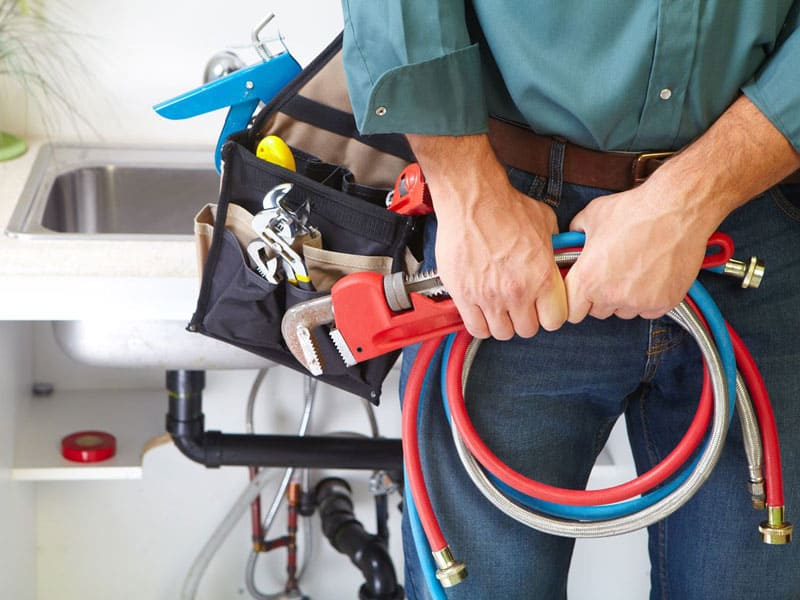
Preventive Measures to Avoid Future Hot Water Issues
To prevent future hot water issues in your home, it’s important to prioritize regular plumbing maintenance. This involves checking for leaks and inspecting pipes for signs of corrosion or damage. It’s also essential to flush the water heater periodically to remove sediment buildup.
Additionally, proper use and care of faucets can help extend their lifespan and ensure consistent hot water flow. This includes avoiding excessive force when turning the handles, promptly repairing any leaks or drips, and cleaning aerators regularly to prevent blockages.
Lastly, timely repair and replacing plumbing components is crucial in maintaining a reliable hot water supply. Suppose you notice issues, such as reduced water pressure or inconsistent temperature. In that case, it’s essential to address them promptly by contacting a professional plumber who can diagnose and resolve the problem before it worsens.
Regular Home Plumbing Maintenance
Explore the world of regular home plumbing maintenance to keep your hot water flowing effortlessly through all faucets in your house. To ensure smooth operation and prevent future issues, it’s essential to perform regular maintenance tasks. Check the water heating system for any signs of rust or damage, and inspect the water valves and pipes for leaks. Also, maintain a clean cold water supply by regularly cleaning aerators and checking blockages. For more tips and advice, consult a reputable plumbing forum. Now let’s discuss the proper use and care of faucets.
Proper Use and Care of Faucets
Taking care of your faucets is crucial for their proper functioning and longevity. If you notice that hot water is coming out of some taps but not others, there may be a problem with the faucet itself. The fixture may be clogged or obstructed, causing lukewarm or no hot water.
To prevent the hot water issue, promptly addressing any problems with your faucets is essential. Now let’s discuss timely repair and replacement of plumbing components.
Timely Repair and Replacement of Plumbing Components
Proper maintenance and timely replacement of plumbing components are crucial for ensuring the efficient functioning of your faucets. When experiencing the issue of hot water in some faucets but not others, it may be necessary to perform timely repairs or replacements.
Start by checking for any issues with the water heater, such as a faulty heating system or sediment buildup. Additionally, inspect the faucet cartridge and consider replacing it if necessary. Don’t forget to check the water valve under the sink.
If these measures don’t resolve the problem, it may be time to call a professional plumber for assistance.
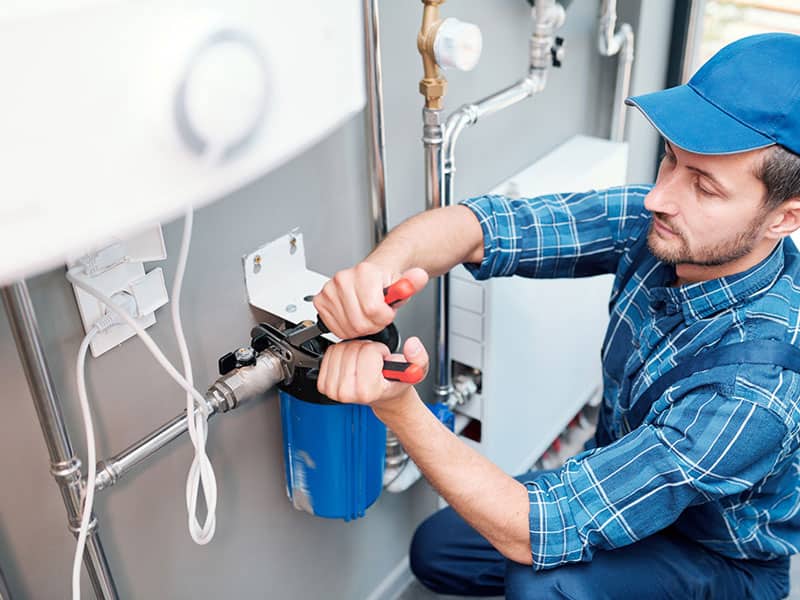
When to Call a Professional Plumber
If you’re experiencing complex plumbing issues, it may be time to call a professional plumber. Recognizing when to seek professional help is essential to prevent further damage and ensure the problem is resolved correctly. Professional plumbers have the knowledge, skills, and tools to tackle even the most challenging plumbing problems. This saves you time, money, and frustration in the long run.
Recognizing Complex Plumbing Issues
Examine the hot water flow in different faucets and fixtures throughout your house to understand complex plumbing issues. This will help you identify any patterns or inconsistencies in hot water distribution. Take note of which faucets receive hot water and which ones do not. Also, check if cold water is affected as well. This information can provide valuable insights into potential problems with your water lines or the water heater. Understanding these complexities will highlight the benefits of professional plumbing services for resolving complex plumbing issues without further delay.
| Faucet/Fixture | Hot Water Flow | Cold Water Flow |
|---|---|---|
| Kitchen | Yes | Yes |
| Bathroom 1 | No | Yes |
| Bathroom 2 | No | Yes |
| Shower | Yes | No |
Examining this table can help you visualize and compare the hot and cold water flow in different areas of your home, allowing you to pinpoint specific problem areas.
The Benefits of Professional Plumbing Services
Hiring a professional plumber for complex plumbing issues is like having a master conductor orchestrating the harmonious water flow throughout your home. When hot water is not coming out of some faucets, calling in the experts can save you time and frustration.
Here are four reasons why professional plumbing services are beneficial:
- Expertise: Plumbers have extensive knowledge and experience in diagnosing and resolving hot water issues.
- Proper Equipment: Professionals have specialized tools to assess the problem and make necessary repairs accurately.
- Time-Saving: Hiring a plumber ensures quick and efficient resolution, saving you from lengthy troubleshooting.
- Long-Term Solutions: Professionals provide lasting solutions that prevent future hot water problems.
By relying on professional plumbing services, you can trust that your hot water issue will be resolved effectively, restoring proper function to your faucet and ensuring a reliable supply of hot and cold water from all outlets.
Conclusion
Congratulations! You’ve successfully uncovered the mystery behind your house’s elusive hot water issue. By diligently researching and analyzing the problem, you’ve gained valuable insights into the possible causes and solutions.
With this knowledge, you can now take decisive action to restore a consistent hot water supply throughout your home. Don’t wait any longer – tackle this problem head-on and enjoy a life of luxurious, uninterrupted hot showers. Remember, professional plumbers are always available to lend their expertise if needed. So go forth and conquer those pesky hot water woes!

